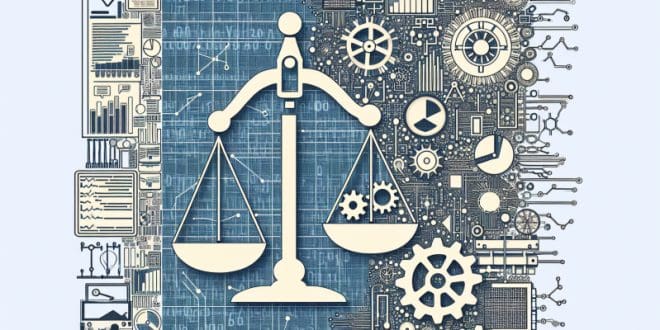In recent years, the philanthropic landscape has been transformed by the advent of data-driven decision-making, promising a more efficient, objective, and impactful allocation of grants. On the surface, this technological evolution seems like a beacon of progress in the nonprofit space. However, beneath the layers of data and algorithms lies a complex web of ethical considerations that cannot be ignored.
As we delve into the data-driven approach to grant allocation, we are faced with potential pitfalls that could perpetuate existing inequalities or create new ones. The automated systems that determine the distribution of funds are only as unbiased as the data they are fed and the designers who build them. The reliance on historical data can inadvertently reinforce systemic biases, as these datasets may reflect past prejudices or institutionalized barriers that have marginalized certain communities. The question then becomes, should algorithms have the final say in who gets funded and who doesn’t?
There is no denying the power of automation in processing vast amounts of data and identifying patterns that would take humans much longer to discern. This efficiency can lead to a more judicious use of resources and enable grantmakers to support a larger number of deserving initiatives. Nonetheless, the impersonal nature of data can overlook the nuanced realities of those in need, especially smaller, community-based organizations that may not have the digital presence or data-savviness to effectively compete in this new landscape.
Our commitment at Grants Club to ethical grantmaking necessitates a critical examination of these automated systems. We must consider how we can leverage technology to enhance fairness and inclusivity, rather than diminish them. This involves continuous monitoring and updating of algorithms to ensure they remain impartial and relevant to current societal values and needs. Furthermore, we must advocate for transparency in the grant allocation process, allowing applicants to understand how decisions are made and providing avenues for recourse should they feel unfairly evaluated.
The role of nonprofit professionals and researchers in this context is paramount. It is our collective responsibility to demand and contribute to the establishment of ethical standards in grantmaking practices. We should engage with data scientists and technologists to ensure the digital tools we deploy serve the greater good and reflect our commitment to equity and justice. We must also educate ourselves and our communities on the implications of these technologies, remaining vigilant to the possibility that they could inadvertently harm those we aim to help.
The Grants Club community is hereby invited to share their insights and experiences with data-driven grant allocation. How do you see these digital tools influencing your work and the broader grantmaking ecosystem? What measures do you believe are essential to promote fairness and transparency in these processes? Your contributions are crucial in shaping a more equitable future for grantmaking in the age of automation. Together, we can navigate these complex ethical waters and ensure that data serves humanity, not the other way around.
By fostering an open dialogue and actively engaging with these issues, we can harness the power of data for good. Let us be the standard-bearers for ethical grantmaking in the digital era, safeguarding the principles of fairness and equity that are the bedrock of our community’s mission.
 Grants Club Community
Grants Club Community







